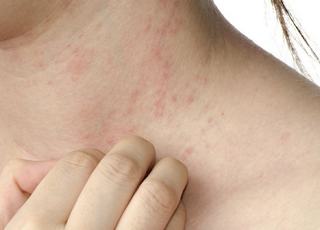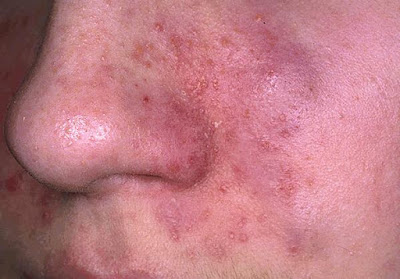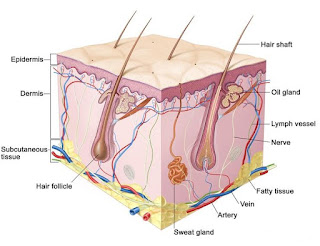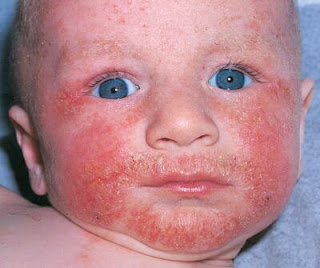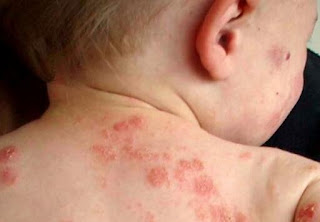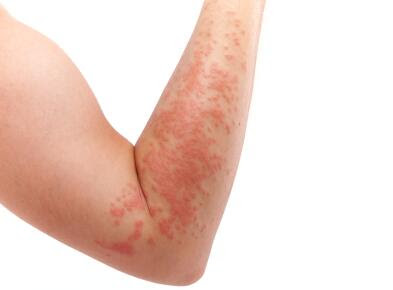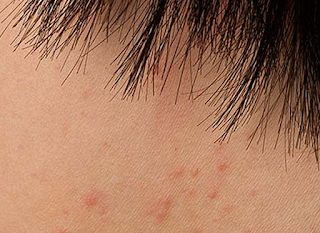Almost everyone, irrespective of age or gender, is afflicted with some or the
other skin problem. Eczema is one such skin problem with an estimated prevalence
of more than 10% among general population.
What is Eczema?
Eczema literally means a type of skin condition where the skin boils out.
This leads to development of itchy, red, dry and cracked skin. Atopic Eczema is
the most common form of eczema and it mostly occurs in children till about the
age of 5 years. But in some cases, it continues well into the adult life
too.
Causes of Eczema:
Eczema’s exact causes are unknown and there is no complete cure that has been
discovered till date. However, treatment aims to control itching and control the
symptoms, the main ones being dryness, itchiness, redness and swelling on the
skin.
Main reasons of eczema are:
Eczema affects the immune system of a person which may lead to sudden skin
responses. When the eczema victim comes into contact with anything at all, the
problem erupts. This doesn’t mean that the person only suffers because of
physical contact. Sometimes the person may show severe reactions even without
any intermittent contact. Eczema is troublesome as the contact of almost any
substance such as clothing, detergents, soaps, grass, food products, allergens,
combination of elements or even dust will take humidity away from the skin and
further worsen the condition.
Another major reason to suffer from eczema may be heredity. In cases where
parents are suffering or have suffered from eczema, there are 80% chances for
their children to develop it too.
Emotions like anger and frustration can also lead to heightened symptoms of
eczema.
Extreme hot or cold weather can be intolerable for those who have a tendency
to suffer from eczema. People suffer from eczema when the level of humidity is
high in the atmosphere and suffer from dryness of skin when the levels of
humidity drop down.
Factors Flaring Symptoms of Eczema:
Eczema is a hereditary disease of the auto-immune system but there are
certain factors that can make the symptoms of this skin disease even worse.
These are called triggers and they are listed below.
For a lot of people who suffer with eczema, exposure to wool or man-made
fibers can cause a bad flare
Perfumes
Makeup
Dust and sand
Cleaners and soaps
Chlorine
Cigarette smoke
Bacterial Infection
Cold or flu
Prolonged exposure to water
Taking a shower for too long
Taking a shower with very hot water
Not using a lotion or skin lubricant after a shower
Low humidity in winter
Living in areas that are dry all year long
Prevention of Eczema
In cases like eczema where there is no permanent cure, it is better to stay
away from irritants that cause troublesome flares in the first place. Keep away
from things that can irritate your skin such as cleaners, detergents, certain
soaps and clothing etc.
1. Moisturize:
Use moisturizer on your skin every day as this can help in keeping the skin
soft and hydrated.Using a moisturizer is the best way to keep eczema under
control. It is important to moisturize after washing and bathing. Unscented
moisturizer is better for skin that way. Thick creams and ointments provide
better protection to your skin.
2. Don’t Scratch:
Eczema does cause itchiness, but scratching can lead to more itching.Even if
it itches, don’t scratch. Itching can further irritate your skin and can cause a
break. It can also crack the skin further, which is generally followed by an
infection.
Also, scratching causes skin damage. You can try using cold compresses,
baths, medications and frequent moisturizing to ease scratching.
3. Identify the Triggers:
Take your own time and identify the triggers to avoid or limit your exposure
to those items. Triggers are what make your condition even worse. It is
essential that you avoid exposure to them as much as possible.
Many things can trigger an eczema flare up; it can be due to dust mites or
scented soaps. The director of Cambio Dermatology in Southwest Florida, Andrea
Cambio says, “You should eliminate all products with fragrance – including
soaps, perfumes, cosmetics and scented body lotions – from your routine.”
Look for unscented mild products without additives and chemicals. Other
potential triggers can be household cleaners, pet dander, grass, gasoline,
chemicals, dust, mites and some foods. If you are not aware which food is
causing allergy you can go for an allergy test.
4. Keep your Hands Dry:
Always keep your hands dry. Make sure you dry your hands after washing them.
Prolonged exposure to water is one of the most common irritants that can cause
eczema.
If your hands sweat too much make sure you carry a handkerchief always with
you. Sometimes, sweating of hands can be caused due to nervousness, so try to
distress completely.
5. Wear Protective Gloves:
If you have to touch something that irritates you, wear protective gloves to
avoid touching them directly. Rubber gloves that are fairly thick will do just
fine.
Your hands are often exposed to water and other substances that can cause
irritation. Protect your hands using rubber gloves whenever you wash dishes or
you place hands in water for a long duration. Wearing light cotton gloves under
the plastic or rubber gloves really help to absorb sweat and cause less
irritation.
You can use gloves whenever you are doing household chores and make sure the
gloves are clean. When you are outside the house during winters try to use
cotton or leather gloves since wool can cause irritation. Don’t forget to use a
non-perfumed thick and moisturizing hand cream before you hit the bed.
6. Stress Management:
Managing your stress is very important as it has been proven that extreme
emotions can lead to eczema irritation. Best proven methods to manage stress
include meditation, breathing techniques, yoga etc. You can also go for
exercise, biofeedback and many others.
7. Control the Temperature Inside the House:
Changes in temperature and humidity can cause eczema flare ups. You can’t
control temperature outside, but you can definitely control it inside the house.
When the weather is hot and humid, use air conditioners at home but when it is
humid try using a cool mist humidifier. This will prevent your skin from
becoming too dry in winters. Also avoid hot shower baths in winters, though it
is invigorating, they strip the skin of moisture further.
8. Wear Comfortable Clothes that Don’t Irritate the Skin:
Cotton and Cotton blends are usually best choices of people with eczema.
Wools and synthetic fabrics like polyester can irritate the skin. Wash clothes
before you wear since this can reduce irritation to some extent. Choose a liquid
laundry detergent which is mild and unscented. Just skip the scented fabric
softeners, since it can trigger eczema flare ups.
9. Follow Skincare Basics in the Shower or Bath:
Hot baths or showers often cause eczema flare-ups, always use room
temperature water.Don’t scrub your skin; instead use a gentle cleanser instead
of soap on the body. When you are done, pat dry and apply moisturizer when your
skin is till damp.
10. Eczema Medication:
If lifestyle changes and above mentioned tips don’t work for you then you
need to visit the doctor immediately. Your doctor may suggest over the counter
cream or an oral antihistamine. If you are already using a prescribed
medication, then follow the instructions strictly.
